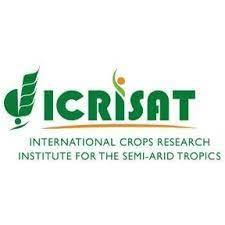Hyderabad's ICRISAT wins Africa Food Prize 2021

The prize was given to ICRISAT for their Tropical Legumes Project, which has enhanced food security in 13 countries in Sub-Saharan Africa.
The prize was presented in Nairobi during the Africa Forum for Green Revolution (AGRF) 2021 Summit, which is now taking place in Nairobi, Kenya.
Africa Food Prize 2021: The Africa Food Prize 2021 has been given to the International Crops Research Institution for the Semi-Arid Tropics (ICRISAT) in Hyderabad for increasing food security in Sub-Saharan Africa, according to a statement from the institute.
The prize was presented at the Africa Forum for Green Revolution (AGRF) 2021 Summit, which is now taking place in Nairobi, Kenya. The prize was given to ICRISAT for their Tropical Legumes Project, which has enhanced food security in 13 countries in Sub-Saharan Africa.
ICRISAT Director General Dr Jacqueline d'Arros Hughes accepted the prize electronically. The $1 million award highlights daring ideas and technological innovations that may be duplicated across Africa to usher in a new age of food security and economic opportunity for all.
The Tropical Legumes Project was implemented by ICRISAT, which has its headquarters in Patancheru, on the outskirts of Hyderabad, between 2007 and 2019.
A nationwide initiative to produce better chickpea varieties in India as part of the Tropical Legumes Project resulted in a 68 per cent increase in area.
The initiative resulted in the development of 266 improved legume varieties and over half a million tonnes of seed for a variety of legume crops, including cowpeas, pigeon peas, chickpeas, common bean, groundnut, and soybean, in collaboration with national and international organisations.
Over 25 million smallholder farmers in Africa and Asia have benefited from these novel varieties, which have helped them become more robust to climate change, as well as pest and disease outbreaks. Aside from these novel kinds, the initiative also trained 52 scientists who are now working in national research institutes across Africa.
According to ICRISAT, training these next-generation scientists in the countries where the programmes were executed has helped enhance the research capacity of African national agricultural research systems and contributed to the initiatives' long-term sustainability.
Dryland ecosystems encompass 45 per cent of Africa's area, according to ICRISAT, and feed and maintain almost half a billion people. These systems, however, are delicate and vulnerable to climate change and environmental deterioration.
Millions of smallholder farmers who rely on dryland ecosystems can benefit from programmes like the Tropical Legumes Project, which helps them grow more food and become more robust to climate change. Burkina Faso, Ghana, Mali, Niger, Nigeria, Senegal, Ethiopia, Kenya, Malawi, Mozambique, Tanzania, Uganda, and Zimbabwe have all participated in the initiative.
Groundnut crop interventions resulted in a 32.35 per cent increase in revenue, 6.72 per cent reduction in poverty, and 14 per cent reduction in food insecurity, according to the Tropical Legume Project.
In Mali, ten groundnut cultivars were released, including six high-yielding, drought-tolerant variants and four ELS (Early Leaf Spot) resistant varieties. Seven groundnut cultivars were released, each with different characteristics such as aflatoxin resistance, early maturity, drought tolerance, and so on. Ethiopia's chickpea initiative earned a national prize for research and innovation in 2013. Between 2011 and 2018, there was a seven-fold rise in the number of enhanced common bean variety releases.





